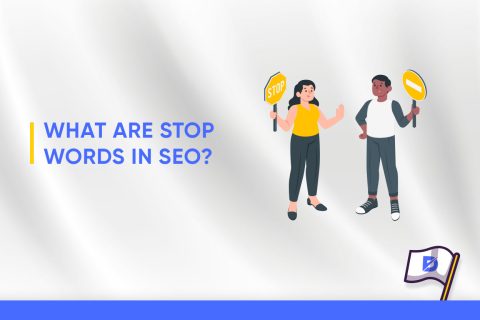Marketing work for e-commerce sites means facing particular challenges. First, highlighting e-commerce sites requires the person doing the marketing work to create a good balance between user experience, conversion improvements, and SEO. Secondly, since online stores are generally comprehensive and sophisticated, in-site optimization efforts can be an endless nightmare.
This guide addresses all the contextual and technical issues that e-commerce website SEO workers may encounter and also includes steps for e-commerce SEO in detail. However, there are ways to deal with these problems and techniques that can save you time. Check out below the best SEO strategies for e-commerce!
Steps For Successful E-Commerce SEO
Now, we will examine and take a closer look at the steps for successful e-commerce SEO strategies you can easily apply to your site. These steps are the fundamentals of e-commerce SEO to drive your success. Strategies include:
- SEO Keyword Research
- Keyword Matrix on SEO
- In-Site Optimization for SEO
- Structured Data on SEO
- SEO Copy Problem
- Out-of-Stock Items
- Pagination on SEO
- Site Speed for SEO
- Mobile on SEO
- HTTPS
- Crawl Budget

SEO Keyword Research
If you are going to develop an e-commerce SEO strategy, the first thing you need to do is keyword research. You must first find the search words related to your products to do this. In this process, you can first perform keyword analysis using tools such as Google Keyword Planner, SemRush, and Ahrefs. Learn more about how to do keyword research.
E-commerce sites should research different areas, such as category keywords, product keywords, and blog keywords. When you do keyword research, you can also use certain words in your advertising strategy. When developing a keyword strategy, also focus on long-tail keywords. In this way, you can attract more traffic.
After doing keyword research, the first step is to create an Excel file. List keywords here. Pay attention to the search volumes of keywords. You can also use Google Trends to see when your keywords are searched more. Don’t forget to consider search intent in keywords.
Keyword Matrix on SEO
When performing keyword analysis, identify all keywords related to your e-commerce site, industry, categories, and products. Save keywords in a spreadsheet or Excel for later use. You can record your keywords by creating a simple table with a keyword matrix. When adding keywords to the table, you can group and categorize them.
First, group keywords based on page types such as blog, category page, and product page. Then, analyze according to search intent. You can use keywords when creating content based on search intent. You can also specify the search volume of your keywords in the table. At the same time, when grouping your keywords, you can also gather keywords that are related to each other.
In-Site Optimization for SEO
If you are planning your e-commerce SEO strategy, you should definitely focus on on-site SEO. Since e-commerce sites have many pages, you must perfect the on-page experience. First, you can link relevant web pages. You can also recommend products that can be purchased together on a specific product page to visitors.
One of the most effective on-site SEO strategies will be the use of breadcrumb. Don’t forget the check on-page SEO checklist too. In addition, you must produce SEO-compatible content on category pages. You should also create a good on-site category layout for your page. In addition, your product descriptions should also be SEO-friendly.
You should also check if there are any incorrect pages on your website. First of all, you need to produce quality content. You can strengthen your e-commerce SEO with original, high-quality, and interesting content.

Structured Data on SEO
Google must first understand your website in order to rank it. For this, website owners must promote their web pages to search engine bots. To do this, it is necessary to focus on structured data.
Structured data allows you to provide search engines with more information about the content of your web pages and products. This way, your product and category pages can rank higher in search results. Check our structured data testing tool for free!
You can provide information on many subjects, such as product names, price information, and product descriptions, to search engine bots thanks to structured data. With this strategy, you can reach your potential customers especially on the Google Shopping page and Google Search Results pages. When using structured data, you should use the right options and make sure they work well.
SEO Copy Problem
One of the biggest problems of e-commerce sites is duplicate content. Since there are many pages on an e-commerce site, if you do not develop a strategy at first, it will be difficult to evaluate your content later on whether there is duplicate content. The content on your website must be free of plagiarism, and all articles must be original. Content shared on your website should not be shared on another web page. If this happens, Google will downgrade your rankings based on duplicate content on your website.
Another duplicate content issue on your website could be duplicate content. Duplicate content is content written with similar keywords. You should identify similar content on your website and tell search engines which page they should consider using methods such as Canonical tags.

Out-of-Stock Items
Users who visit your e-commerce site and search for a product may be disappointed if your product is out of stock. You need to develop some special e-commerce solutions for products that are not in stock. First of all, if a product is no longer in your stock, you should remove these product pages if you have stopped selling it. If your product is out of stock and will come into stock after a while, you should definitely develop some strategies. It would be wrong to completely remove the page here. First of all, prospective customers should know that the product will be back in stock.
The smartest approach is to prepare special pages informing you that the products will be back in stock. You can tell users when the product will be back in stock. Apart from this, you can get their e-mail addresses by leaving a form and notifying them when the product is back in stock. If products on your e-commerce site are out of stock, another approach is to recommend similar products to users. If you recommend the right products, users will also be willing to buy your new products.
Pagination on SEO
Presenting the content of your e-commerce site on a single page can be challenging in terms of SEO and user experience. Learn more about Pagination and SEO. In this case, one of the most effective strategies will be pagination. With pagination, you can divide certain content into many pages instead of presenting it on a single page. If you are paginating, you can insert the previous and next buttons so that your visitors can navigate between similar pages.
It is very important that the different pages you create are scannable. In this way, users visit different pages when they want to get information about a subject, and the bounce rate on your website decreases. If you are going to implement a pagination strategy for your website, you can put a “Show All” button or add a content section to the beginning of your content.
Site Speed for SEO
People who want to buy a product first search on the internet. They want to experience purchasing from reliable sites that sell the product they are looking for, provide a good user experience and offer price advantages. Site speed is very important in e-commerce. When users log in to an e-commerce site, if the page takes a long time to load, they prefer to immediately close the site and log in to the other site.
For this reason, you should plan optimizations to ensure your website opens in less than 3 seconds. Optimize the images for SEO on your product pages by compressing them without losing quality. At the same time, develop different strategies to increase your website’s page speed. While site speed is a very important ranking criterion for Google, it has become a very important necessity for e-commerce sites. Learn more about how to speed up your e-commerce website.

Mobile on SEO
A significant portion of users who shop online are mobile users. Therefore, e-commerce sites should focus on mobile users to market their products and services. When Google indexes your web pages, it considers the mobile version and indexes the mobile version. Therefore, your website must be mobile-compatible even if you appeal to desktop users. Mobile compatibility should be taken into consideration in order to reach more customers and sell products on e-commerce sites. Your product pages need to open smoothly on any mobile device. Learn more about mobile SEO!
It is important that mobile users can have a seamless purchasing experience on your website. People who can purchase the product with the least number of clicks are more likely to have a purchasing experience on your website. It is also important for e-commerce sites to have a reliable and seamless payment experience for mobile devices. As a result, you must have an e-commerce mobile SEO strategy in order to get indexed and make more sales. Don’t forget to use our mobile-friendly test tool!
HTTPS
Https can be defined as a data security protocol that allows you to present the SSL certificate on your website. Google requires SSL certificates and HTTPS security protocols on its websites. Before focusing on e-commerce SEO, it is important to have the HTTPS protocol on your website. In this way, security encryption is provided on your website, and visitor information is always protected.
If the HTTPS protocol is not implemented on your e-commerce site, user information may be at risk during the payment process. For this reason, the number of people who want to buy products from e-commerce sites that browsers do not mark as safe is very low.
If you are going to use AMP for mobile SEO on your website, you can only do this on sites with https. Be sure to add this to your e-commerce strategy for payment security and security of user information on your website.

Crawl Budget
The crawl budget refers to the total number of pages that search engines will crawl on your website in a certain period of time. In order to use its resources correctly, Google gives each website a certain crawling budget. E-commerce sites are sites consisting of many pages. Therefore, your website may have many incorrect pages. That’s why you should follow your website’s pages closely, find faulty pages, and fix them directly.
You can strengthen your e-commerce strategies by optimizing your Google crawl budget. With a qualified crawl budget optimization, search engine bots can crawl and index more of your pages in a shorter time.
If you do not optimize your crawl budget, some of your product sales pages may not appear in search results. Therefore, if you want to run your search engine optimization smoothly and strengthen it, you can have some strategies to improve your crawling budget.
Conclusion
E-commerce has great competition regardless of the sector. Opening an e-commerce site is not enough to make sales. To reach users for free, you should definitely invest in SEO. To stand out on search engine results pages, you need to develop some e-commerce SEO strategies. You should plan your website’s SEO efforts and strengthen e-commerce SEO by following the steps we mentioned above. You can rank higher in search engine results pages with the right strategies. This allows you to deliver more of your products to your potential customers. In this way, you can make more sales with a successful e-commerce SEO strategy. By leaving your competitors behind, you can get professional support on e-commerce SEO and reach more potential customers.
Frequently Asked Questions About
Search engine optimization can support your e-commerce site’s sales and revenue and make you the market leader in your sector. The good news is that your investment in SEO will even pay for itself in a brief time, while its effects will last for many years.
You need three types of SEO for a balanced organic search strategy: on-page SEO, technical SEO, and off-page SEO. It would be simpler to organize and execute when you break down your strategy and think about SEO into three categories.
Advertising doesn’t directly affect your website’s organic search rankings. This is a broad misconception, but SEO does not directly impact AdWords, and AdWords does not directly affect your SEO. They are totally different beasts.
E-commerce SEO includes optimizing product details in addition to normal SEO strategies.
Yes, all SEO operations are free on Shopify. You can work on every SEO detail on Shopify for your website needs.





No comments to show.